A New Museum Opens Old Wounds in Germany
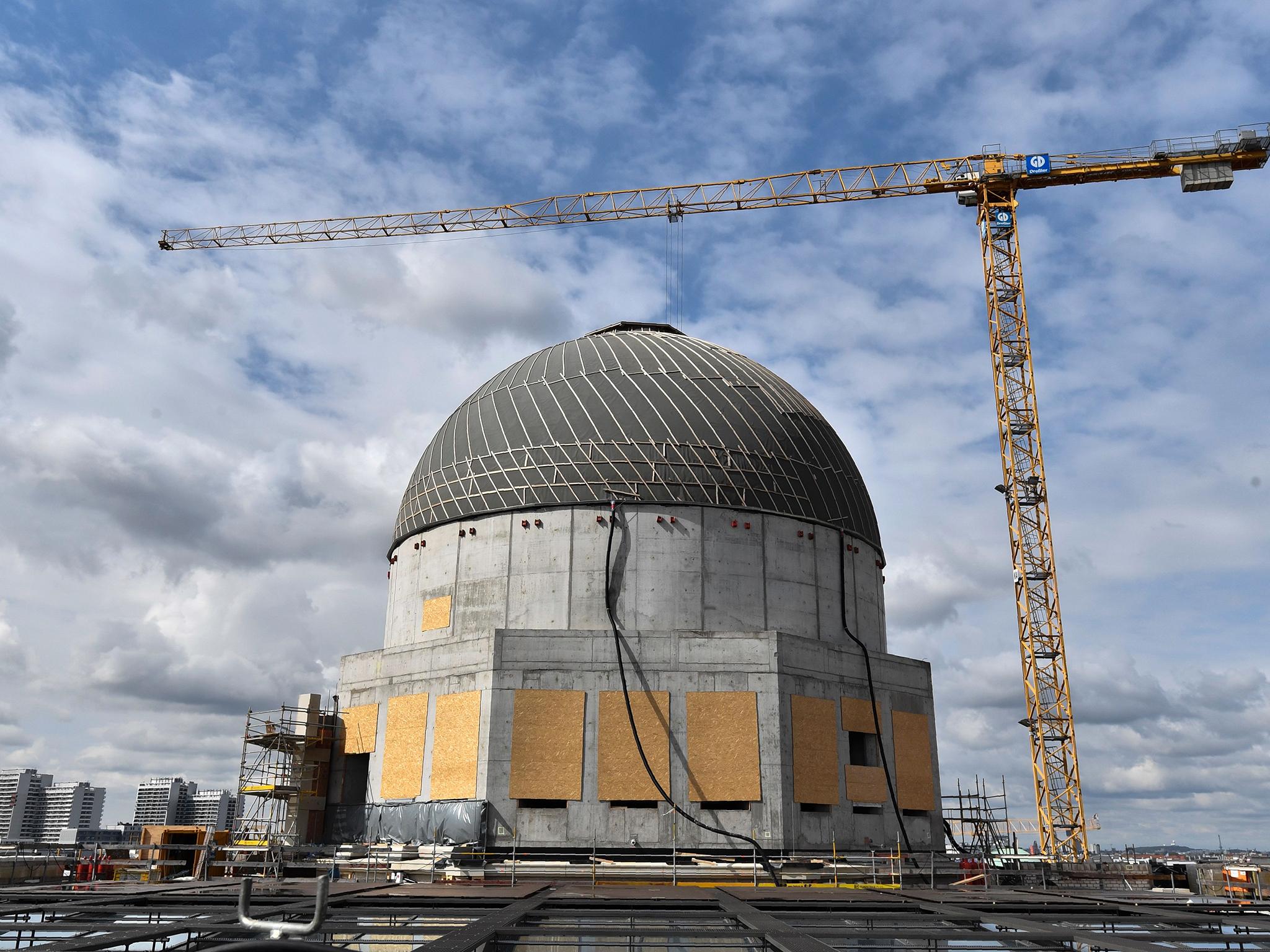
Your support helps us to tell the story
From reproductive rights to climate change to Big Tech, The Independent is on the ground when the story is developing. Whether it's investigating the financials of Elon Musk's pro-Trump PAC or producing our latest documentary, 'The A Word', which shines a light on the American women fighting for reproductive rights, we know how important it is to parse out the facts from the messaging.
At such a critical moment in US history, we need reporters on the ground. Your donation allows us to keep sending journalists to speak to both sides of the story.
The Independent is trusted by Americans across the entire political spectrum. And unlike many other quality news outlets, we choose not to lock Americans out of our reporting and analysis with paywalls. We believe quality journalism should be available to everyone, paid for by those who can afford it.
Your support makes all the difference.One Saturday morning in February, about 100 protesters marched loudly through Berlin’s streets to the Humboldt Forum, a new museum rising beside the River Spree.
Wrapped in scaffolding, the Forum, one of Europe’s most ambitious current cultural projects, loomed above them as they gave speeches and held up signs that say: “Tell the Truth About Germany’s Colonial History,” “Clear Out the Colonial Treasury” and “It’s Your Duty to Remember.”
One protester, Christian Kopp, bellowed into a microphone, saying that, no matter what the founders had intended, the museum would forever be associated with the blood of the empire. “This,” he says, pointing to the facade of the Humboldt Forum, “will be a memorial to the colonial era!”
Another protester, Marianne Ballé Moudoumbou, says: “Think about the spirits of those who are still roaming here”.
The Forum, which cost €595m (around £534m), is being housed in a rebuilt palace, a fixture of the German and Prussian imperial past that was bombed during World War II. The prospect of objects gathered during the colonial era moving into Kaiser Wilhelm II’s domain has focused further attention on the period, which the nation has never properly processed. Many of the ethnological materials that will be in the museum’s impressive collection were amassed during that era, under circumstances that aren’t altogether clear.
Maybe it was never going to be easy to build a major new museum in a country with such a history as Germany. But the Humboldt Forum has upset a lot of people.
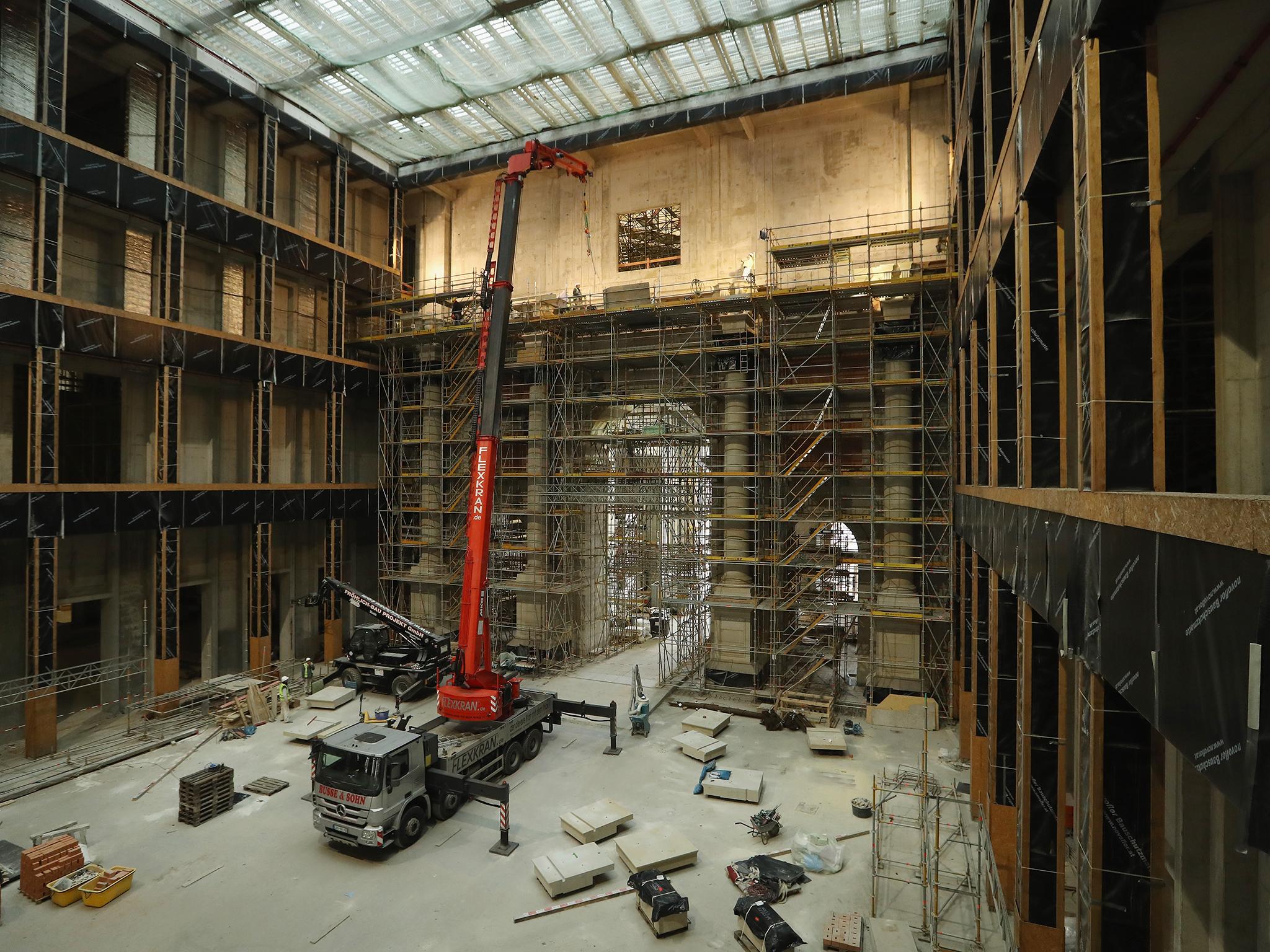
When it opens, there will be huge wooden boats from the South Pacific, a Buddhist temple from fifth or sixth-century China and a royal throne from Bamum in western Cameroon, decorated with glass beads and shells. A new museum crammed with jewels of non-Western art and culture in the center of the reunified capital seemed like a good idea: It would show Germany as confident and open to the world. It would also give the country another world-class institution it could be proud of, comparable to the British Museum or the Louvre.
But as impressive as the museum itself is, the vitriolic debate that has arisen. One of the Forum’s three founding directors, the art historian Horst Bredekamp, describes the furore as a “psychogram of Germany” and says that the pushback is hijacking the original purpose of focusing on German scientific enlightenment and exploration.
The disagreements also provoked the resignation of a well-regarded advisory board member, Bénédicte Savoy. “The baby is dead on arrival,” she said in an interview, denouncing the museum as a conservative project that does not reflect a modern Germany changed by immigration and crying out for new thinking.
In the era of a divided Germany, a parliament building was erected on the same ground. It was torn down a decade ago to make way for the rebuilt palace. This irritated those Germans who thought that you couldn’t rewind history, and that the architecture of their capital should be more forward looking. It saddened Easterners who were aggrieved that their story was being literally erased from the landscape.

Nearly 30 years after East and West Germany were reunited, there is a longing here for an identity that goes beyond the Holocaust and World War II, postwar division, reconstruction and reunification. As modern Germany seeks to define itself in a more complex way, the urge is surfacing to discuss past glories of scientific achievement, history, art and exploration as well as to confront an uncomfortable part of its past.
At the center of these convulsions, the Forum has pitted those who want to move on and celebrate national accomplishments against those who caution that Germany risks forgetting what it was. Germany has addressed World War II and Nazi atrocities, although these achingly difficult parts of its history may be impossible to atone for fully, but it still has not even begun re-examining its colonial era properly, critics say.
“For too long the colonial period was a blind spot in our culture of remembrance,” Monika Grütters, Germany’s federal culture minister, said in a statement.
Jürgen Zimmerer, a University of Hamburg professor and expert on African history and colonialism, said, “There is a lot more at stake than just the museum”. Zimmerer, who is a critic of the museum’s approach, said, “The political colonial debate has become the defining debate in Germany,” adding, “and the Humboldt Forum is at the center of it.”
Build It Up, Tear It Down
The centuries-old Schloss, the original building at the heart of the debate, is seen as a link to an era of philosophers by its supporters; to its critics it symbolises a seat of imperial power from a time of militarism and national expansionism — traits that ultimately brought down the Allied bombs on the castle in 1945.
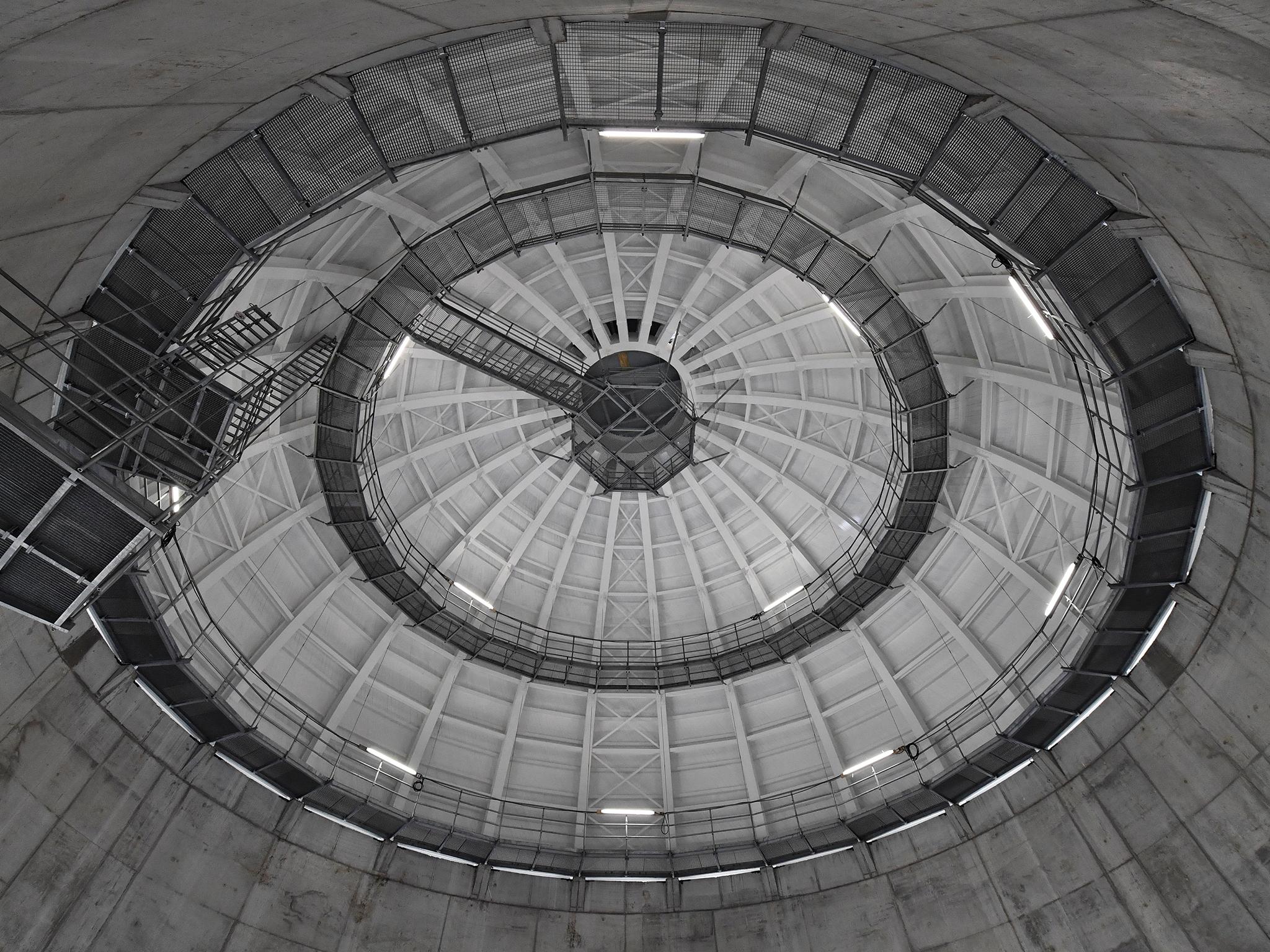
Then there was a worry, made more sensitive by the far-right’s recent inroads, that re-creating the Schloss signaled a concerning nostalgia for an age when Germany was great, a view of the past that skimmed over the horrors of the 20th century.
In another sense, the project, which will be completed soon, will make the center of Berlin aesthetically whole again, Wilhelm von Boddien, who helped raise the money to rebuild it, said. As he spoke, standing beside the Forum, he gazed out at the Greek colonnades of the nearby Altes Museum and the giant cathedral where the emperors lay in their crypt. At the other end of Berlin’s central boulevard, Unter den Linden, stood the Brandenburg Gate. The Forum’s central place in the historic cityscape was clear.
“Why must Berlin suffer from the Nazi times more than other German cities?” von Boddien asked. “Why don’t we allow Berlin to be beautiful again? We are repairing a city. And the city needs repair because it lost its heart.”
The East German communist authorities gleefully demolished the war-damaged Schloss in 1950. In its place, they constructed a stark, smoked-glass-and-steel parliament building, the Palast der Republik, which opened in 1976.
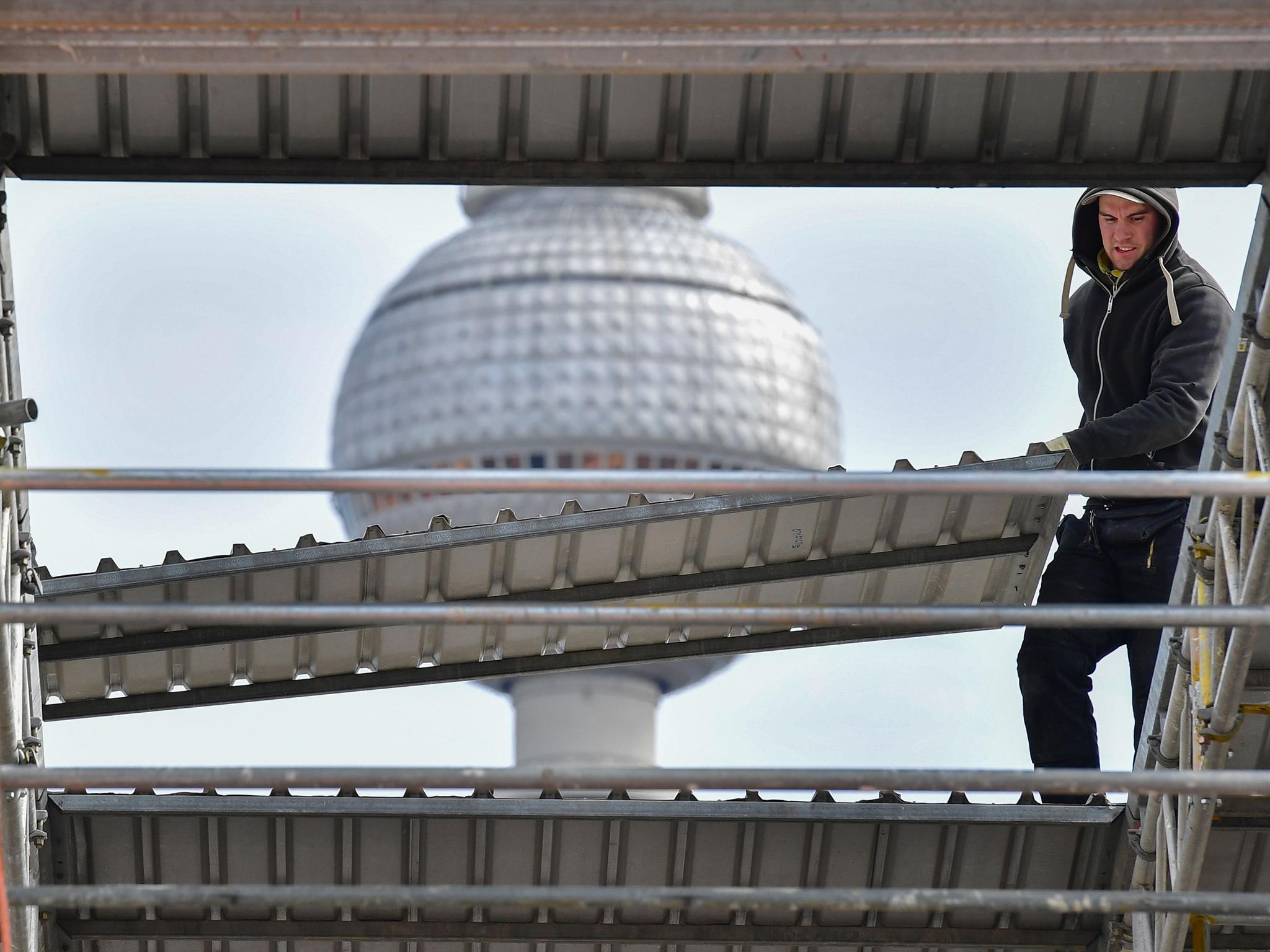
The idea to use the Schloss as a modern museum and a home for the non-Western art collections in Berlin finally gave the project the political momentum it needed to get built.
The collection from Berlin’s Asian Art Museum and the non-European collection from the city’s Ethnological Museum form one of the world’s richest holdings of non-European art and artifacts in the world. Displaced by war and the division of the city, the two museums had homes for decades in the suburb of Dahlem.
But over the past few months, these collections have begun to return to the center of the city in preparation for the forum’s opening in 2019. The idea is that they are getting a prominent showcase in a beautifully redone historic building and will become accessible to many more visitors.
The Forum will bring the Asian Art and Ethnological Museums together under one roof, along with exhibitions by the Berlin City Museum and Humboldt University. With so many players, the struggle to create a single new institution out of multiple power centers has led to countless headlines about dysfunction.
It was one of the reasons Grütters, the culture minister, wooed Neil MacGregor, a former director of the British Museum and a respected arts administrator, to Berlin to be one of the Forum’s three founding directors. One of his tasks was getting the parts of the museum to coordinate and present a coherent offering.
The power politics were blamed for the delay in attracting a new general director to replace the founding directors, as planned. Arguably, the biggest player is the Prussian Cultural Heritage Foundation, a body established after the war to preserve the cultural legacy of the former Prussian state. It runs many Berlin museums, and will continue to control the extensive collections in the Forum, raising questions about what influence any director can exert.
It is called a “forum” because its organisers want it to be more than a museum — a place for discussion and investigation of big global issues like immigration, he said.
The three founding directors stepped down earlier this year, including MacGregor, who continues as chairman of a panel of outside advisers. Their successor, Hartmut Dorgerloh, was most recently manager of an organisation that preserves Berlin’s palaces and gardens. Some have wondered how his experience equips him to cope with the big debates unleashed in part by the Forum, but others regard him as a capable and connected administrator, an insider who will make sure it opens on time.
He faces lingering questions — about why, for example, an ethnological collection should be shoved together with Asian art. But the biggest outcry continues to be about Germany’s colonial past.
The Past Is Always Present
Historically, Germany came to empire building later than other European countries like France or Britain.
But its colonial activities involved atrocities such as the genocide of Herero and Nama ethnic groups in what was then German south west Africa, and is now part of Namibia, and hundreds of thousands of deaths in the Maji Maji revolt in German east Africa, in what is now Tanzania.
Germany’s colonialism was linked to what came next, according to Zimmerer: Colonial officers developed ideas on racial purity, and the colonial expansion foreshadowed the Nazi push for land in Eastern Europe, for example.
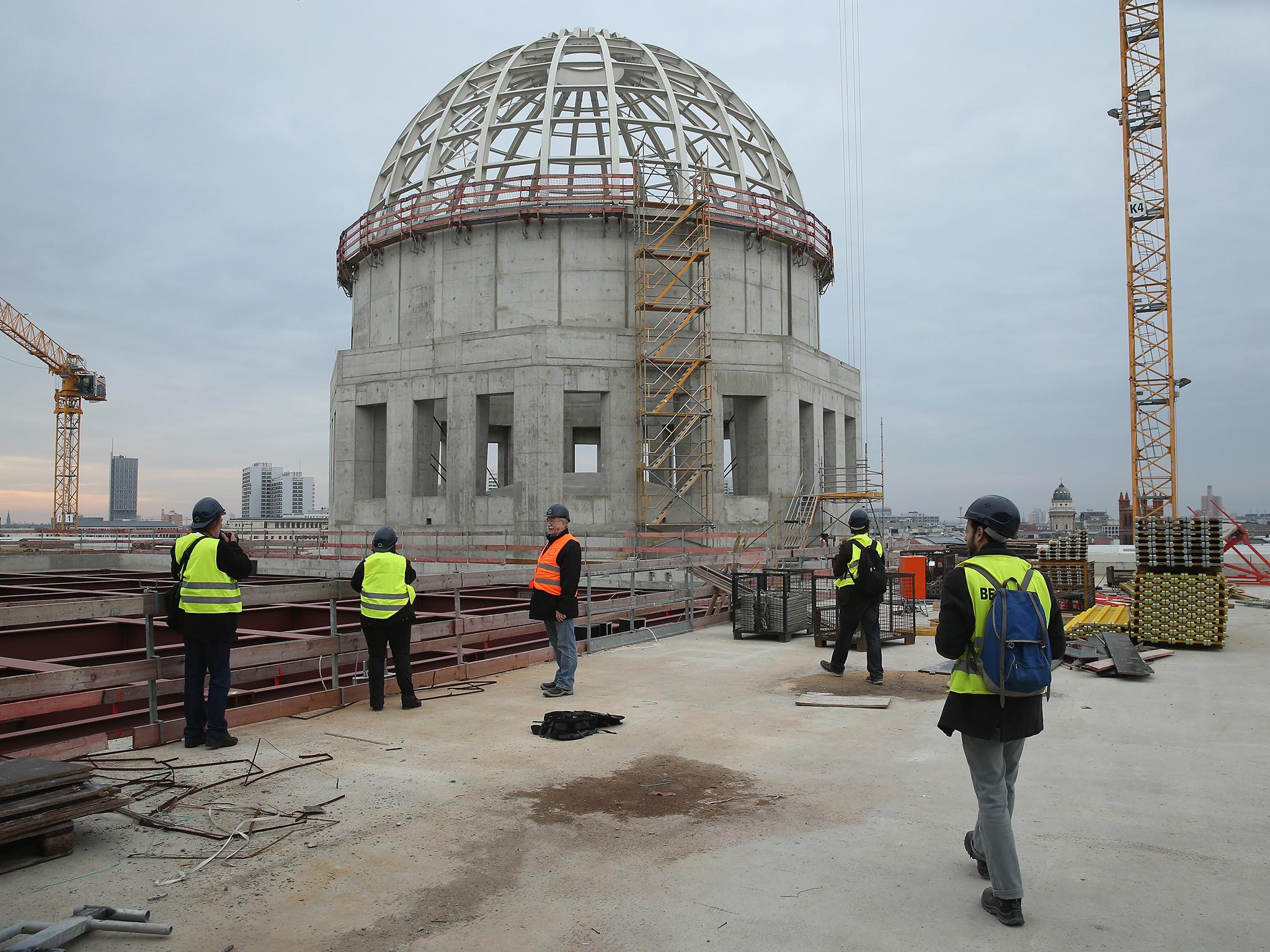
Germany lost its overseas territories in the Treaty of Versailles at the end of World War I, and so it was not swept up in the great postcolonial self reckonings of other European nations after World War II. By then, it was confronting the aftermath of its more recent history.
“The public historical debate in Germany was completely absorbed by consideration of the Nazi past and of the ramifications of division,” said Nicholas Thomas, director of the Museum of Archaeology and Anthropology at Cambridge. “There has been much more discussion of empire in Britain, France and the Netherlands, where people in museums have thought much more about where collections have come from, and there is a deeper awareness of the sheer historical complexity.”
Many of the objects in the Prussian heritage foundation’s massive collection were gathered in a spirit of scientific inquiry as explorers brought objects back from around the globe to preserve them and learn from them, Bredekamp said. But countless others, according to the critics, were seized by force, or given by people who had no choice. Human remains and sacred religious objects, which collections in Berlin contain, would hardly have been surrendered willingly, the critics point out.
“It is undisputed that the objects reached Berlin under unequal power relations and sometimes by force,” Viola König, a former director of the Ethnological Museum, wrote in the weekly newspaper Die Zeit.
The colonial debate that has at times seemed to overwhelm the Forum has prompted some action. There are plans to introduce new expert curatorial voices from countries where the objects originated, to get away from the idea that it presents a purely German take on the world. A specialist from Tanzania, for example, will be co-curator of an exhibition about that country.
There are plans for other joint ventures with Namibia, though critics wonder what influence outside experts will really have. Where there has been a claim for restitution, this will be noted on an object being displayed, Dorgerloh said.
Since the debate intensified, Grütters has encouraged a greater focus on colonialism. The German Lost Art Foundation, which traditionally investigates Nazi-looted art, announced it would widen its remit and give grants to museums for colonial provenance research.
The heritage foundation and its president, Hermann Parzinger, agree that the provenance of objects in the forum’s collections needs to be more fully researched, and some things should eventually be returned. But he proposes a gradualist approach that requires first a broader European rethinking of the principles of restitution.
“It makes sense to give some things back,” Parzinger said in an interview. “But we should not say everything has to go back.” He added, “We have to see if we collected them in a legal way. History,” he said “is not just black or white. There are also gray areas.”
© New York Times
Join our commenting forum
Join thought-provoking conversations, follow other Independent readers and see their replies
Comments